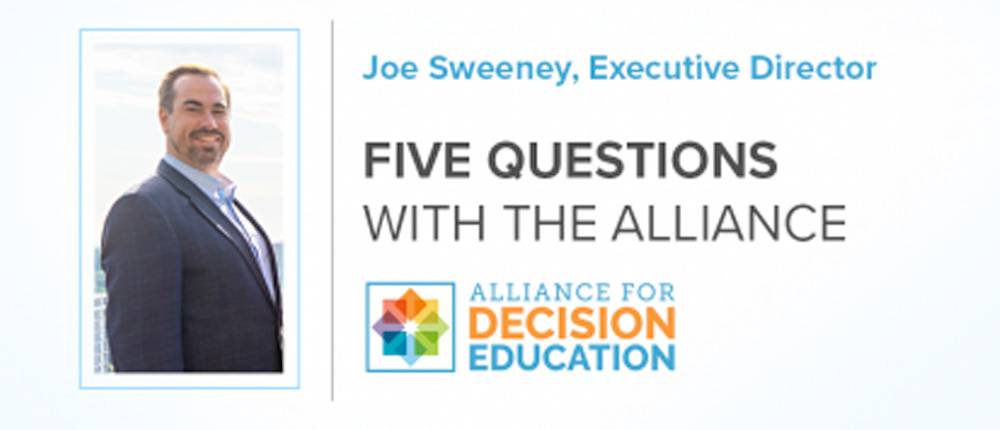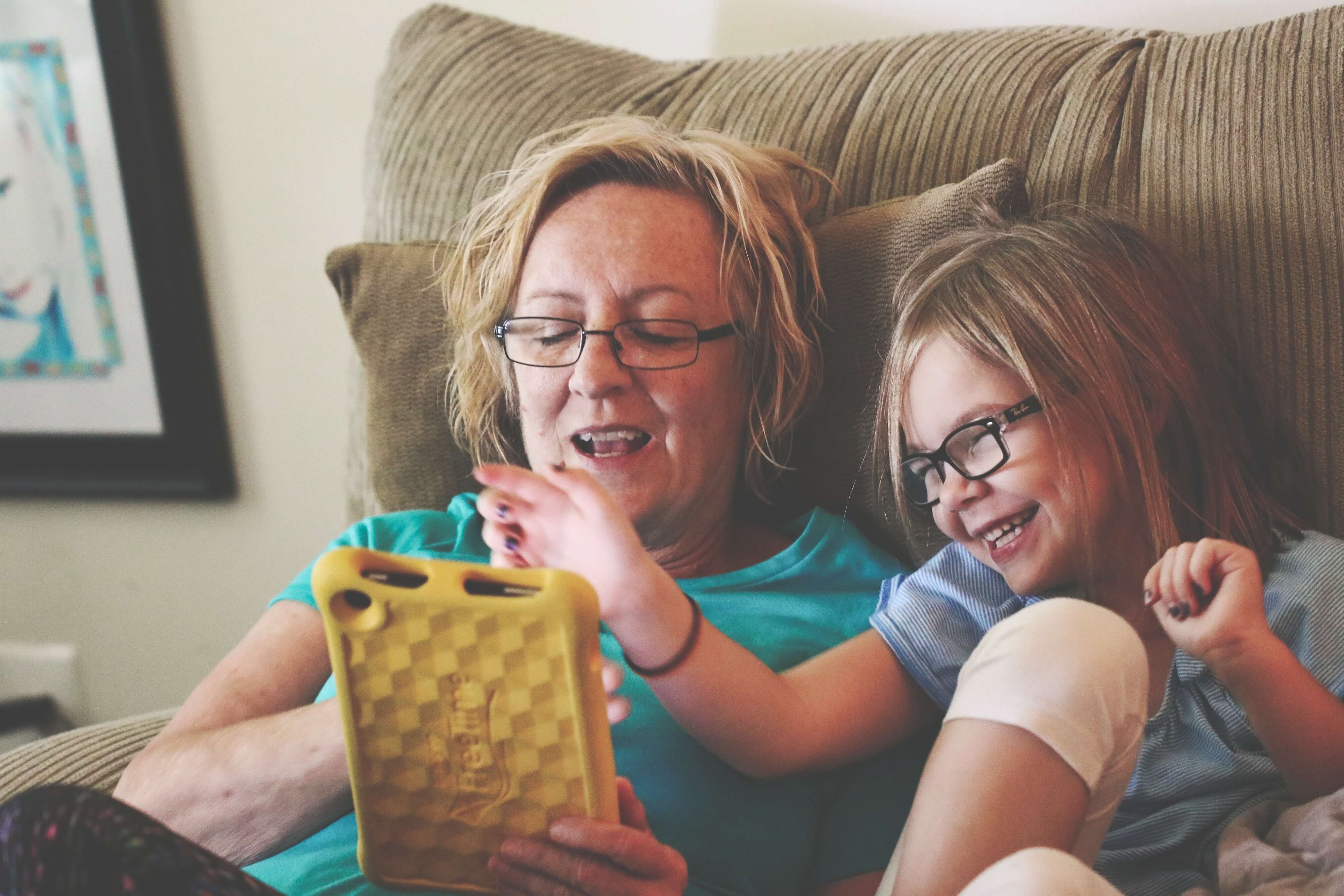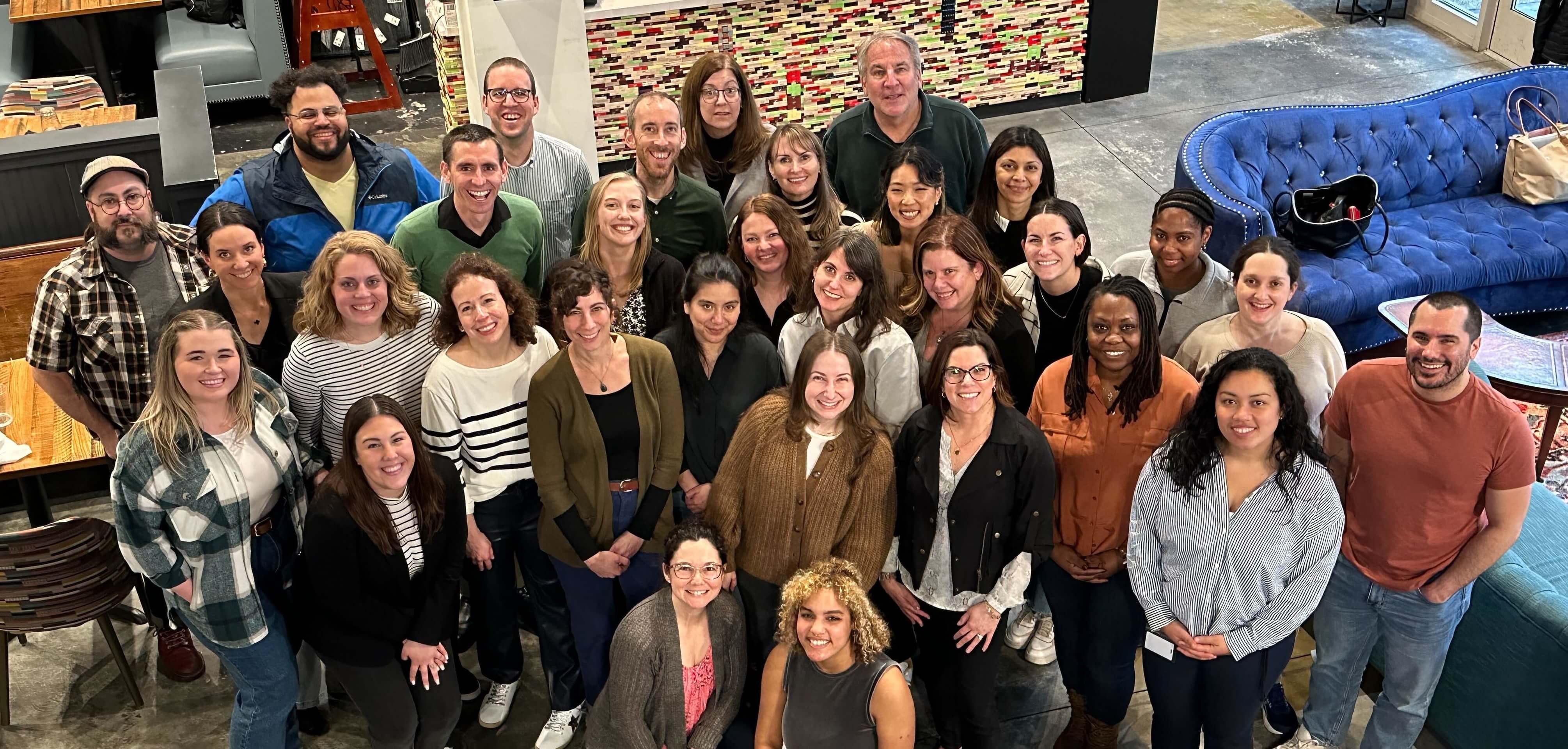Five Questions with Joe Sweeney, Executive Director of the Alliance for Decision Education

Q: Did your interest in decision skills happen gradually or all at once?
A: I’ve always been interested in wisdom and philosophy, but the focus on decision skills only started for me about five years ago when I began to understand the many ways we are all predictably irrational, seeing the world inaccurately and behaving in ways that are inconsistent with our well-being. We are all making less skillful decisions than we could be every day. That can be seen as a depressing circumstance if it didn’t come along with evidence that we can actually improve our decision skills.
I joined the Advisory Council of the Alliance as an expert in education, but I knew very little about the science of decision making. In order to be helpful to the team, I began reading the literature and trying to make sense of it. I did not expect it to prove so personally beneficial. I am still learning and practicing. I am optimistic about improving and regret not having been introduced to these skills much earlier in my life.
Q: What are your favorite books about decision making?
A: Yikes. That’s a long list. If you are new to the topic and can only read one book, I would recommend Annie Duke’s Thinking in Bets. It’s practical, readable, and captures the main findings of the research literature and translates them into useful thinking tools. I would sing about it a lot more if Annie wasn’t on the Board and it might give the appearance of a conflict of interest. Annie deservedly has lots of fans, as does Daniel Kahneman for his book Thinking, Fast and Slow. Most people know him as a psychologist who won a Nobel Prize in Economics, but he’s also on our Advisory Council and a good friend of the movement for Decision Education.
Another book I think is very important is The Rationality Quotient by Stanovich, Toplak, and West. I think once it catches on it will change how we think about hiring in this country because we'll place less value on measures that demonstrate a prospective employee’s IQ and more value on their potential to make rational judgments and decisions (their RQ). Everyone interested in talent management and education should read it. I also recommend people go to our website to find additional recommendations for reading.
Q: What sets apart the best decision makers you know?
A: I know a lot of experts from reading their books, but personally the best decision makers I know are certain about their values and comfortable with being uncertain about their state of knowledge. They demonstrate ethical clarity and intellectual humility. They are not the most dogmatic. Firm and flexible, they are interested in their long-term well-being and the well-being of others and are open-minded about how to achieve that. They are present, mindful, truth-seeking, slow to decide and clear about why they are making the choices they are making. They are trying to see the world clearly, and behave in ways that are consistent with their goals.
Q: What do you think is the most important thing to do before you make a decision?
A: Stop. Think. Be present. And engage the mental models and skills you’ve learned to improve your decision processes. Some of them include recognizing that you are making a decision, thinking about your values, framing and re-framing the decision, and generating multiple alternatives. Also, think about the criteria that matter to you. Get other perspectives. Ask yourself, “What are the most likely ways this can go wrong?” and think about possible unintended consequences. Consider the risks and opportunity costs. Notice if there are things about the context you can alter to increase the likelihood of a positive outcome.
Q: What do you think are the most important decision skills for young people to learn?
Agency: Decide what to think, to believe, care about, and do. Develop a strong sense of agency, locus of control, and executive function. These are more like dispositions or habits of mind, but I group them into the general category of decision skills.
Think probabilistically and manage uncertainty: We should recognize that we can only make estimates about the future, about the past, and about the current state of the world. We can’t really know. Even if someone sounds confident, they’re just making an estimate. That said, we should all be trying to improve our estimates.
Emotions matter: How you and others feel affects decisions. Emotions can either inform decisions or rule them—it’s up to you. Learn to recognize and name your emotions. Understand how they affect your thinking and behavior. Learn how to reduce their impact, how to cool down.
Recognize and Resist Biases: Our brains come with powerful evolved shortcuts, heuristics, that help us manage the enormous amount of information in our environments. However, those shortcuts come with blind spots, and biases. Learn to recognize them and understand how they may be affecting your judgment and decisions.
Practice: We recognize that to improve at something like archery, we need to practice. It’s important to note that the same is true of judgment and decision making. There are real learnable and teachable skills and they require daily practice.
Learn how to make and manage habits: Our habits are decisions on autopilot. We make our habits and eventually our habits make us.

